#likealittleheartbreat recommends
Explore tagged Tumblr posts
Note
hello !!
i was wondering, do you know any other characters like aang from other shows/movies/books? or maybe, just his theme of radical kindness appearing in other stories?
i've been missing aang, and it would be nice to find other representations of such a fun and warm personality like his.
ps.: your blog is like, fantastic. truly.
🥰🥰🥰🥰 This is the best ask I’ve ever received!!! Depictions of radical kindness in media is a special interest of mine—not exaggerating. So I’ve done my best to make a list of rec’s, just tv, from most formally similar to ATLA to least, with a short description for each.
1. Fruits Basket (2019)
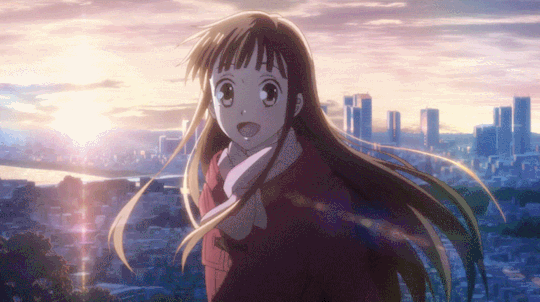
"My mom told me, it's better to trust people than to doubt them. She said that people aren't born with kind hearts. When we're born, all we have are desires for food and material things. Selfish instincts, I guess. But she said that kindness is something that grows inside of each person's body, but it's up to us to nurture that kindness in our hearts. That's why kindness is different for every person."
An anime orphan whose established memory of the kindness by which her family raised her ends up transforming and liberating a whole clan from an intergenerational curse that enforced an abusive hierarchy all within a show that has a deeply queer subtext, beautifully complex plotting and character development that due to its zen influence refuses to demonize anyone or any perspective wholly, AND a straight romance you can actually root for!? Nothing comes closer to ATLA thematically than this show. While the lead Tohru Honda is the biggest representative of radical kindness, the character of Momiji Sohma with his complex purity, idealism, and gender performance is one of the closest you'll find to Aang in any media.
2. Mob Psycho 100 (2016-2023)

"The truth behind one's charm is kindness. Just be a good person, that's all."
Mob Psycho 100 explores a core tenant of ATLA's critique of imperialism and power: greatness and perfection are overrated. They both ask the question about what to do for the world with one's gifts if that's the case. How can one be both normal and prodigious at the same time? The satirical comedy and style of this anime, which deconstruct a lot of the shonen genre tropes, are pretty distinct from ATLA, but when ATLA arrived on the airwaves, it was a pretty massive break from tradition in Western animation, and for both of these series, that difference of style is tied to the message of the show about the experience and acceptance of difference.
3. Natsume's Book of Friends (2012-present)

"As I encountered kindness, I wanted to be kind myself."
The anime, Natsume's Book of Friends and ATLA both depict the challenge and necessity of facing abandonment, loss, and a deep-seated loneliness with kindness and gratitude despite the persistence of grief. Both take a deeply spiritual view--even a responsibility--of this experience that demands a compassion for all beings including those who intend to do harm. Natsume, an orphan shuffled between houses who is one of the few people who can see spirits called youkai, inherits his maligned grandmother's book of yokai names, becoming a target for them in the process. He hides all of this from everyone in his life, and even five season in, still has trouble admitting to the one person who understands him when he is struggling and needs help. The gentle and light tone papers over a profoundly honest representation of attachment trauma and the wisdom of compassion that develops as a tool to cope with it.
4. Hunter x Hunter (2011-2014)
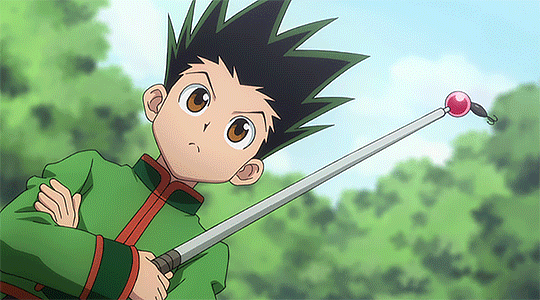
"You can do whatever you want to hide your feeling. You still have a heart."
If you think that "Radical Kindness" is by definition non-violent, then this show is either not for you or going to change your mind. Gon, the protagonist of HxH, like Momiji mentioned in Fruits Basket, is another rare character whose naivete and optimism are treated with respect. He is allowed to suffer, to be wrong, to be stupid, and to inspire others away from their own cynicism with the persistence of his beliefs nevertheless. But HxH is a show that integrates the most violent aspects of the world (organized crime, capitalistic competition and privileging, state-sanctioned brutality, pure sadism) with its examination of human potential for goodness. And even within a list of shows deeply inspired by spirituality and religions, this show is abundant with religious references as it seeks out meaning, balance, and an ethic for modern experience. On top of that, it ranks with ATLA for the depth and relevance of its magic system to its themes, plus its got gay subtext out the wazoo!
5. Mushishi (2005-2014)

“Make sure to remember, every person and place has a right to exist. It is true for you too, the entire world, as a whole, is your home."
Elegaic, episodic, compassionate, and strange, with some of the best short story-telling of all time, Mushishi is the story of a medicine-man who travels the Japanese countryside helping people deal with the spirits that accompany the little trials and tragedies of life that cling to our minds long after they're passed. The protagonist, Gingko, and the show itself takes the approach of restraint to observe these problems fully and come to a conclusion that's taoist in its balance and acceptance of reality--"Eyes unclouded by hate" as Miyazaki/Gaiman would have it. Each episode is like a therapy session arguing for you to choose to live even as the heaviest burdens sit on your chest.
6. Reservation Dogs (2021-2023)
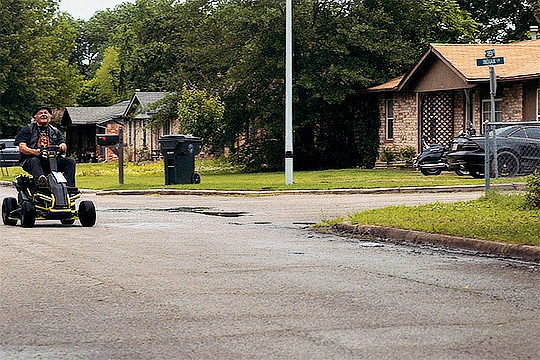
"See...love doesn't have to be received, it can just be."
We're finally out of the animes, and moving away from the zen and shinto approach into some other options. Reservation Dogs' indigenous humanism was groundbreaking, bringing in distinctly modern American realities (with the kind of true-to-life details only a an on-location shoot could offer) with Native beliefs about ancestry, community, and connection to the land, while rarely feeling preachy. Instead, it's just fucking hilarious and casually heartbreaking. Four friends on the edge of graduating high school on a reservation in Oklahoma try to figure out what to do with their lives after their plans to go to California get abruptly messed up. Radical kindness as a concept often gets focused on accepting the enemy but what about accepting the weird stoner uncle who farts all the time and won't talk about his years in the army. I think that might be a more important goal of radical kindness, in truth, if we are being asked to look and accept reality for what it is, because growing comfortable with disappointment and the mundane let's us live without the relentless striving that drives perfectionism.
7. Skam (2015-2017)
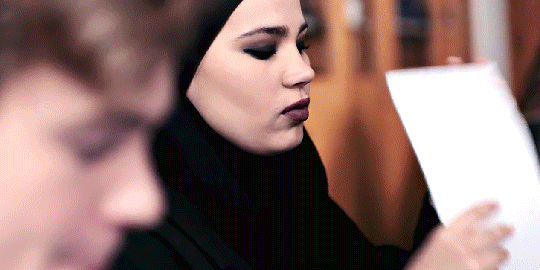
"The second you start looking for hate, you find it. And when you find hate, you start hating."
A Norwegian teen drama that understood internet culture better than any show before or since, four season-long romance plots better than any romance film from that decade, and a masterfully constructed exhortation about leaning into failures of connection to build deeper compassion rather than demonize another person or group. Each season focused on a specific character within a high-school friend group, emphasizing the limited scope of subjective experience, and had them confront the challenges of opening up to others fully. And even when they return into the scenes with new protagonists, their lives weren't sorted perfectly, reflecting how resolving a single romantic plot point would not resolve life. The impact of this low-budget public-television web series (!!!) will be felt for years (it's already been referenced by Netflix juggernauts like Sex Education and Young Royals), but we're not likely to see something that juggles political themes, heartfelt characterization, realistic dialogue, and meta-commentary (it flashed its own hater and fan comments across the screen in the last episode!!) in such a obsession-inducing package anytime soon.
7. Boys Like Boys (2023)
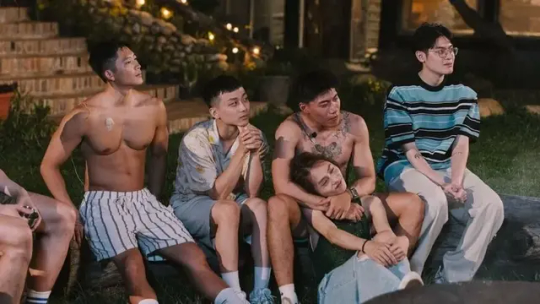
"Because I have always been someone who hates myself, I don't have the courage to face it. Running away is my only option...What if I give myself one more chance to be brave?"
So how can a reality show make it onto a list of radically kind tv series, especially a dating show!? Well, when that reality dating show casts people who radiate warmth, vulnerability, and respect and seem to have the kind of chemistry that most scripted shows can't even manage, it's a good start. But then, when they elevate that cast with a format that addresses the cruelty of dating, elimination formats, and broader societal exclusion (an important consideration for a gay dating show), it offers a new model for future shows. Boys Like Boys did this when mid-season (spoiler alert) they had contestants vote out a contestant, only to provide the contestants with a vote in which they could retain a contestant who they didn't want to leave. In fact, many of the contestants asked if they could abstain from making a vote that would eliminate a constestant and were allowed to. The final result left one contestant, Jia-Hang, up for elimination--he had voted for himself to be eliminated, and many contestants, recognizing his reticence to continue on the program, didn't want to force him against his will to stay. Then, looking around at nearly the whole cast sobbing, even apologizing to him for not providing him enough support, Jia-Hang chooses to stay on. This is just one of many heart-warming authentic moments in the show that illustrate the vital influence of kindness to impact the trajectory of our hearts.
8. Joe Pera Talks With You (2018-2021)
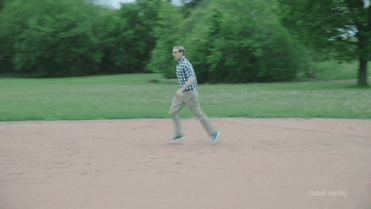
"I can help you reach things. I can tend the garden. The different hours we keep are a good thing. And when they overlap, I can offer companionship and entertainment."
So much has been written about this show's groundbreaking kind approach, I'm going to quote instead: "It can be difficult to convey how a TV show airing on Cartoon Network’s provocative nighttime programming block Adult Swim can evoke almost nostalgic feelings of kind-heartedness. The premise of Joe Pera Talks With You is so simple as to almost be beside the point: Comedian Joe Pera plays a lightly fictionalized version of himself as a sweet Michigander, a middle-school chorus teacher with small and specific passions. Joe likes breakfast food, obscure trivia, beans, trips to the grocery store, and his grandma. He greets every day with a contented smile, stands beneath a pale blue sky, packs a balanced lunch that contains no surprises. (A turkey sandwich with cheese and a tomato, a banana, some trail mix, and as a treat, some cookies.) Joe, more than anything, is satisfied. His greatest joy is sharing these small pleasures with you, the viewer who exists on the other side of the fourth wall he has cleanly dismantled, often speaking quietly to the camera like he’s sharing a secret, just between you two. That he’s talking “with” and not “to” you is a crucial distinction in the show’s title: Joe never lectures nor rhapsodizes. Instead, he waxes poetic about what he loves and who he cares for and how he leads his life, telling his stories from a vulnerable position of welcoming you into his daily existence.” --“A Great Comedy About Being Good,” Allegra Frank for Vox
9. Anne with an E (2017-2019)

"Her life was not short on challenges, and still she held no grudges, believing instead that grace is perennial like the green, green grass."
While maligned for not being the 1980s version, this Netflix adaptation of Anne of Green Gables takes what many have read as an autistic subtext and made it text, giving Anne a performative quality that pushes a lot of the audience into the same irritation that the characters of Avonlea feel for Anne at first, and, thus, requires its audience to persevere toward the same kindness that Anne inspires in her adoptive mother figure, Marilla, among others, which is much more rewarding than simply identifying with Anne right away. In so doing, it enhances the development of its broader approach to acceptance--an approach in its insistence on the requirement of a community of kindredness (see Sebastian's excitement at finding out about the black community in "The Bog") that is much more rigorous than many other shows will cop to. Expanding far beyond literal adaptation into queer, black, and indigenous characters, without disguising history or disparaging the thematic seed of grace at the heart of the novels, Anne with an E imagines what it meant and what it might still mean to build real joyful community with others through kindness.
10. Little Bear (1995-2003)

"Interesting."
A childhood favorite that disguised in its simplicity a wide-openness to the world and an acceptance of different natures. While most child shows emphasize kindness, few do so with as much patience, wonder, and generosity extended to its viewers. Little Bear is a curious kid who goes on adventures in the woods around his house that can turn into games or small imagined experiences. He is sometimes with his friends Cat, Duck, Hen, Owl, and Emily, whose personalities, along with Little Bear's, bring about small tensions in their games that ultimately resolve, if not independently, then with the help of Mother Bear or Father Bear, who give each other knowing glances about the expected childhood behaviors. This is the first show that initially taught me to observe things while withholding my judgment, that first step of radical kindness.
12. The Andy Griffith Show (1960-1968)
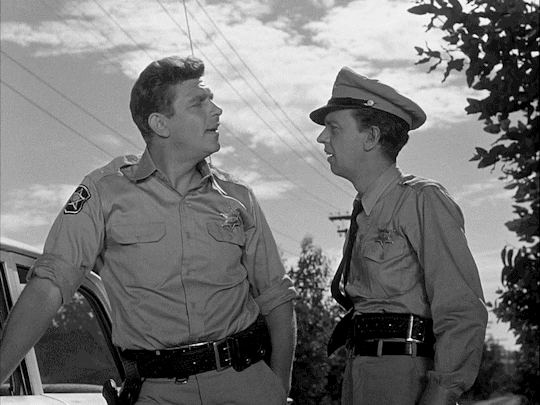
"The key to happiness is finding joy in the simple things."
One really old and somewhat controversial throwback for my last entry. If you have concerns about a sheriff character representing radical kindness, I would encourage you to start with the third episode of season 3 where Andy, the sheriff in question, has to explain to the new mayor why he doesn't carry a gun and lets prisoners go to gather their crops. There have been some fantastic pieces written about the complexities of this show's bucolic fantasy and Southerners (of all races) attachment to it, but they all acknowledge a type of humanistic and deceptively simple virtue found in Mayberry that audiences long to witness, if not emulate themselves. It's a morality that resists the "hyperactive zealotry" and bureaucracy that the show satirizes through Barney Fife (along with guest characters like the new mayor) and instead emphasizes the understanding that one can have for each individual and the trickstery middle paths that one can find to address conflict.
#sorry this took so long to respond to!#honorable mentions include Hey Arnold! & The Good Place & Friday Night Lights & S1 of Ted Lasso (but only S1 lol)#atla#kindness prevails#likealittleheartbreat recommends#fruits basket#mushishi#natsume yuujinchou#hxh#andy griffith#joe pera talks with you#reservation dogs#little bear#skam#awae#boys like boys#mp100
39 notes
·
View notes